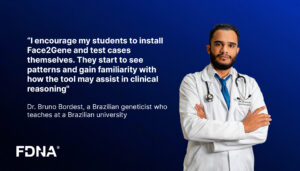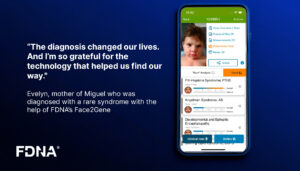September 9, 2017
“The human face is a remarkable piece of work. The astonishing variety of facial features helps people recognize each other and is crucial to the formation of complex societies. So is the face’s ability to send emotional signals, whether through an involuntary blush or the artifice of a false smile.”
The article explores how advanced technologies, particularly artificial intelligence and machine learning, are being used to extract valuable information from facial features. FDNA’s Multi-Modal Algorithm Framework leverages deep learning algorithms to analyze facial structures and identify phenotypic markers associated with genetic disorders. This innovation in facial analysis not only enhances diagnostic accuracy but also promises advancements in precision medicine and personalized healthcare. The technology exemplifies the growing intersection of digital health and AI, showcasing how machines can provide critical insights into human health by interpreting subtle facial cues and patterns.


